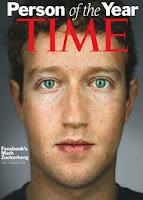
The social media bubble is about to burst says Axel Schultze, social media practitioner, author of “Channel Excellence”. People are recognizing already that the endless hours of watching the incoming streams from Twitter and Facebook or all the status updates on LinkedIn are hours wasted. All the paid tweets and people or agencies, who have been hired to tweet are not going to contribute to the bottom line. And the fan pages people build to get "fans, followers, connections" are just hopes that it will do something for the business – but it won't.
Axel seems to have a lot of supporters. "Despite all the excitement surrounding social media, the Internet isn't connecting us as much as we think it is. It's largely home to weak, artificial connections, what I call thin relationships", says Umair Haque, author of The New Capitalist Manifesto: Building a Disruptively Better Business, in the Harvard Business Review .During the subprime bubble, banks and brokers sold one another bad debt — debt that couldn't be made good on. Today, "social" media is trading in low-quality connections — linkages that are unlikely to yield meaningful, lasting relationships, says Umair. Further on, Social Media Advertising it seems that is in early infancy, too: represents less than 1% of global industry total, says a recent Deloitte report. Despite the fact that social networks look likely to surge through the 1bn user mark in 2011 and will deliver 2trn advertisements, Deloitte predicts that advertising revenue will remain at a US$5bn, or US$4 per member. It says this represents less than 1pc of the global industry total.“That’s a slow start for the technology sector’s next big thing which has promised greater rewards. The decade-old phenomenon of search advertising and perhaps the billions of stated 'likes' on social networks does not translate into tangible purchases. It is early days for this fast-growing sector which could yet be used as e-commerce spaces or payment platforms while the strong trust element that social networks command amongst users could be harnessed by advertising companies and their clients,” explains the report.

